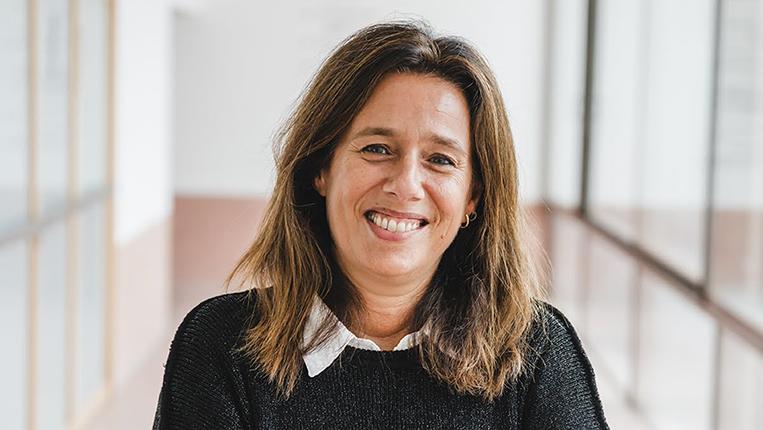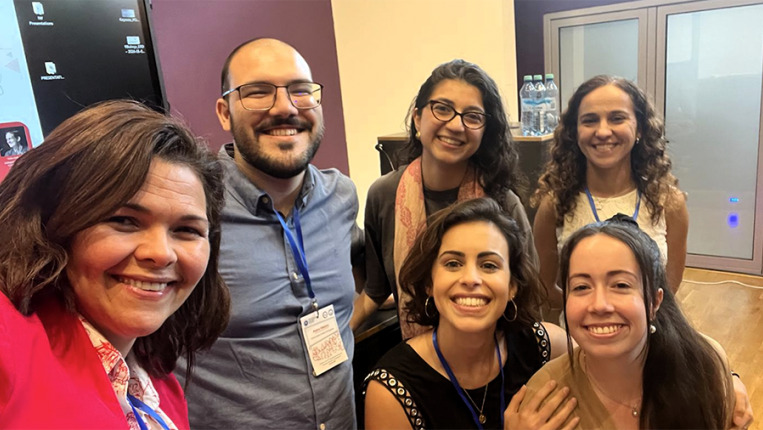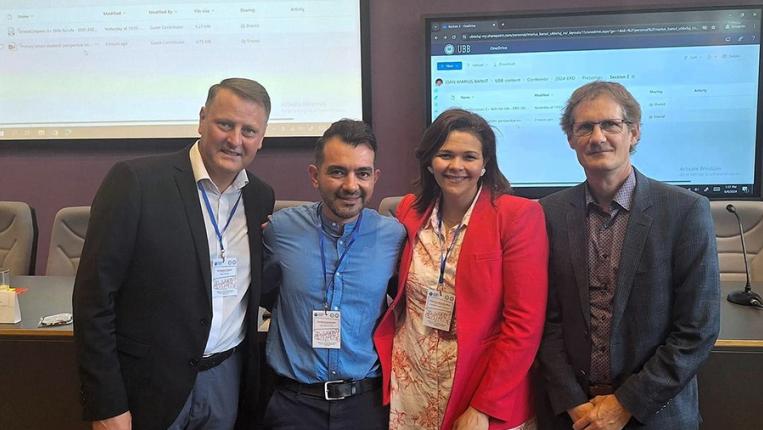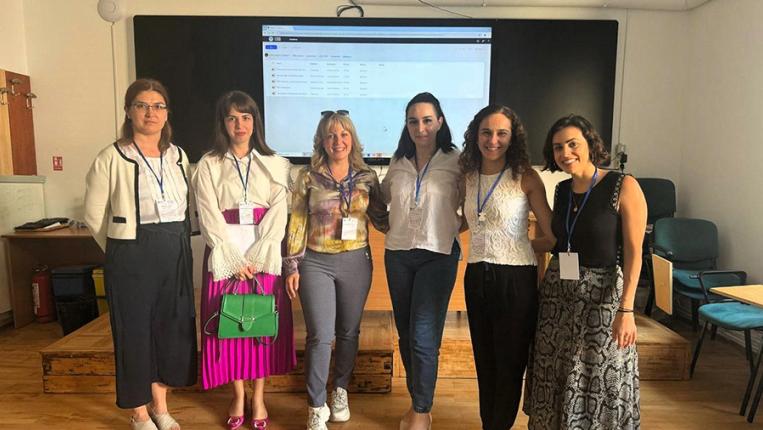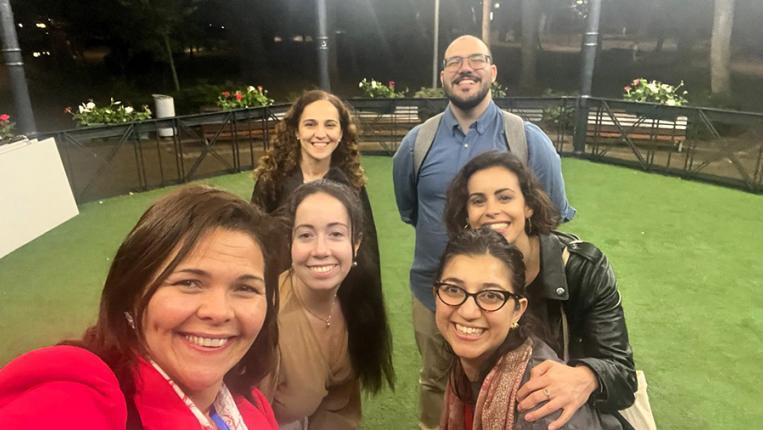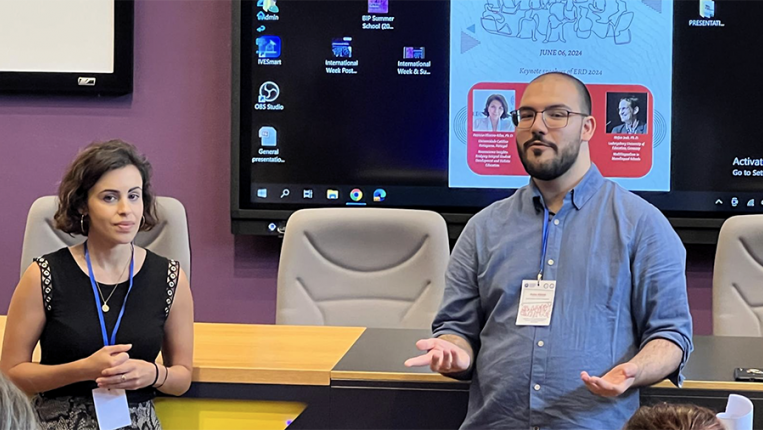How have the transformations driven by Artificial Intelligence (AI) affected Psychology and Education? To delve deeper into this topic and find some solutions, several researchers and students from the Faculty of Education and Psychology of the Universidade Católica Portuguesa (FEP-UPC) travelled to Romania to participate in another edition of the BIP - Blended Intensive Program, this year dedicated to the integration of AI and new technologies in Psychology and Education.
BIP is a new form of the Erasmus+ programme, involving at least three higher education institutions that commit to designing a short, multidisciplinary and international course on innovative teaching and learning strategies.
In this edition of BIP, the FEP-UCP teamed up with the Universitatea Babeș-Bolyai in Romania and the Ludwigsburg University of Education in Germany to organise a course focused on the integration of AI and new technologies in Education and Psychology, which took place at the Romanian university from 2 to 8 June.
From the Faculty of Education and Psychology, 12 students from different study cycles of the Faculty (bachelor's, master's and doctoral) took part in the course. Some of them shared their knowledge by running workshops on topics such as AI applied to Higher Education, the application of generative AI to a neuroscience course and the contribution of neuroscience to education for sustainability.
Pedro Ribeiro and Ana Moreno, PhD students at the Research Centre for Human Development (CEDH-UCP) and members of the Human Neurobehavioral Laboratory (HNL) at the FEP-UCP, led, among other activities, a dynamic and engaging workshop on the challenges and opportunities of AI in higher education, where participants proposed innovative solutions for each of the topics presented.
Patrícia Batista, a researcher at HNL, gave a presentation highlighting the contributions of Neuroscience to Education for Sustainability.
Patrícia Oliveira-Silva, a lecturer at FEP-UCP and a member of the BIP organisation, gave a keynote speech on the holistic development of students in universities and how neuroscience and AI can work together to overcome current technological and pedagogical barriers.
Exposure to other cultures and enriched learning
The FEP-UCP students who participated in the BIP found the experience very positive and enriching.
For Maria Francisca Rodrigues, a psychology student, "BIP gave me the chance to learn about new techniques and tools, in this case related to AI, which can be very useful and inspiring for my future as a psychologist."
Fayra Cordova, also an undergraduate student, found the experience very constructive, as she was able to "develop different skills that go beyond the content covered, also providing contact with other cultures and languages".
The intercultural dimension was also highlighted by Matilde Rodrigues (undergraduate): "the opportunity to be immersed in different cultures and customs and to have so many unique experiences was exciting."
Ionna Xenophontos, a PhD student at the FEP-UCP, lists some of the lessons she took away with her from this intensive course: "I learned a lot about how our linguistic architecture is shaped by historical and political forces from Professor Stefan Jeuk from Germany, and also about the importance of evidence-based practices in education from Professor Patrícia Oliveira-Silva from our institution. I also saw how cultivating truly reflective practices can improve learning and development with Dr. Remigijus Bubnys from Lithuania/Ukraine."
Embracing the opportunities that AI can bring to Higher Education
AI can enable Higher Education Institutions to explore new frontiers in research and develop innovative solutions to current problems.
"At the FEP-UCP we are committed to ensuring that our community is at the forefront of innovation in both Education and Psychology. We want to promote a dynamic learning experience that is relevant to the society in which we live in and that is in tune with current needs," says Patrícia Oliveira-Silva.
The FEP-UCP faculty believes it is important to focus on a pedagogy that values the personalisation of teaching and that meets the different needs of students. To achieve this commitment, "it's important not to ignore the new technologies and not to swim against the current, but to ally ourselves with the best that they offer us, taking advantage of the opportunities that AI can provide," she adds.


